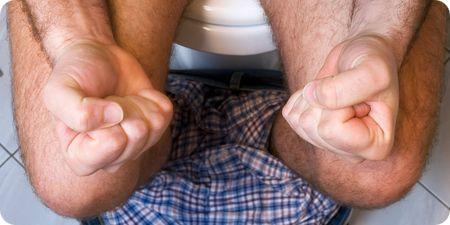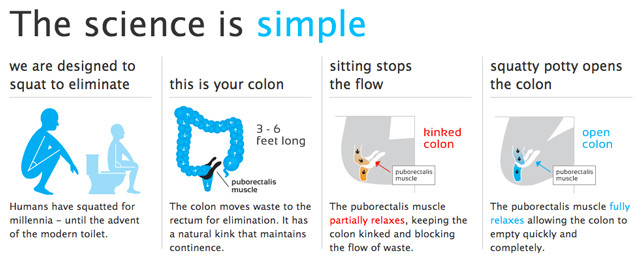 Hemorrhoids, also known in the vernacular as piles, are an embarrassing problem, due to the fact that they are found in the anus. Whilst they can be a bit of a pain in the ass, all joking aside a better understanding of what causes these uncomfortable and painful veins can help to prevent you from suffering.
Hemorrhoids, also known in the vernacular as piles, are an embarrassing problem, due to the fact that they are found in the anus. Whilst they can be a bit of a pain in the ass, all joking aside a better understanding of what causes these uncomfortable and painful veins can help to prevent you from suffering.
Contents
What causes hemorrhoids?
Piles have a variety of contributing factors, although a hard and fast rule for getting them is not clear. Essentially, they are thought to occur because of increased pressure around the anus, which can be attributed to several different things. The pressure then causes inflammation and swelling in the blood vessels in your anus.
Like many illnesses, there are several different factors which can affect your likelihood of getting hemorrhoids. These include, but are not limited to:
- Obesity or being overweight
- Constipation and straining
- Straining caused by heavy lifting
- Straining caused by a cough/ vomiting
- Diarrhoea
- Pregnancy
- Ageing
- Genetics
- Eating ‘sharp’ foods (e.g. seeds)
Common types of hemorrhoids
There are two major types of hemorrhoids, dependent on whether they are internal or external. The external ones come from the most external part of the anal canal and show as protruding veins or small fissues in the anal passage. Naturally, it follows that internal hemorrhoids come from the inner part of the anal canal, near the rectum and these are sometimes only detected because of a presence of blood.
Each can be as innocuous or as dangerous as the other, but with internal bleeding, you may have to have scans to rule out other internal problems such as cysts, cancer and bowel issues. If these go untreated then you may experience lots of bleeding from the anus, which can be frightening.
Often characterized by itching of the anal passage, you may also notice blood in the stools. Often they subside naturally within about ten days, but sometimes there are complications.
Complications accompanying hemorrhoids include, but are not limited to:
- Bleeding
- Deficiency in iron from the bleeding
- Blood clots
Treatment of hemorrhoids

Sometimes the hemorrhoids naturally go away, but otherwise there are a few different treatments available. There are also a variety of ways to prevent them from occurring. The problem can be itchy, uncomfortable and really sore.
Over the counter (OTC) medicines include hemorrhoidal cream or suppositories, which are applied topically. The active ingredient in most creams is benzocaine, which causes blood vessels to contract, and therefore takes the pressure off the area. This can have adverse side effects such as headaches, fever, sickness and vomiting or in some cases it can dry the area out; exacerbating the condition.
These creams and suppositories also can affect the functionality of the immune system, if used for prolonged amounts of time. This means it will actually prevent any future issues from healing as rapidly as they should.
Lifestyle treatments that can prevent or reduce swelling are:
- Ice packs
- Avoiding strain
- Using a donut cushion
- Soaking in a warm bath
- Increasing your fiber intake
- Drinking more fluids
- Taking regular exercise
What food helps reduce hemorrhoids?
One of the major considerations for people who regularly suffer from piles is what to eat. As a rule, it is important to ensure you are getting a high fiber diet, but also that you chew food well to ensure it is smooth paste.
If you don’t take action, then you could subject yourself to much more severe pain and bleeding, plus a host of other complications. You may wish to consider reversing the condition naturally, with the guidance of a self-help book. We recommend the Hemorrhoid No More program. Order a copy today to get rid of the soreness and discomfort of hemorrhoids.
